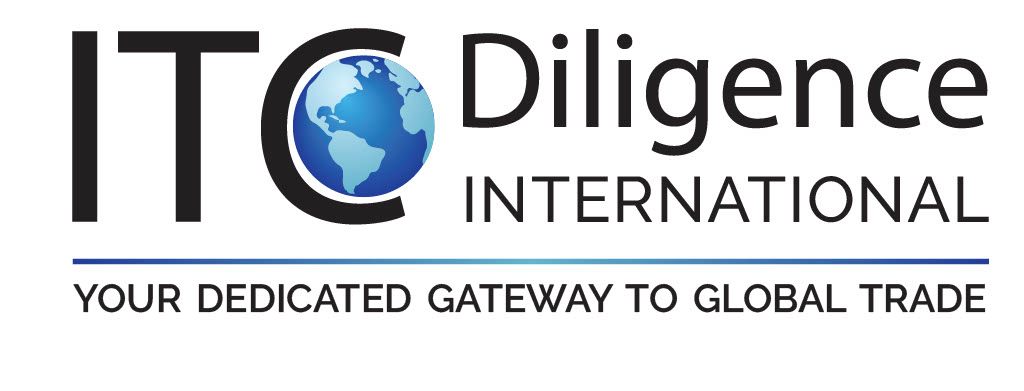The holiday season usually has predictable trends that often affect the logistics industry in a big way. Conversely, supply chain challenges and global logistic problems will absolutely impact holiday shopping delivery. But how accurate is a seasonal shopping forecast when attempting to account for negotiation breakdowns, repeated port strike threats, empty containers sitting at record dwell times, and a persistent shortage of equipment?
Recessionary signs continue to show up in other industries, so many importers and exporters are eager to know; How will supply chain and economic challenges affect holiday shopping?
Understanding seasonal logistic trends doesn’t come from watching news or reading articles. ITC Diligence International Inc. has been developing supply chain management options, FTZ warehouse strategies, and the 4PL operator program for over 30 years designed specifically to fit the needs of importers and exporters globally. Because of this extensive experience, the experts at ITC Diligence International Inc. have deeply customized solutions for businesses to implement when the supply chain feels the holiday squeeze or when tariffs and duties are in question.
Smart business owners, importers, and exporters will prepare now with a 4PL operator to develop an FTZ warehouse strategy that will ensure the best possible delivery experience for their customers when the holiday season is in full swing this year.
Looking into the final quarter of the year, there are specific indicators that tell us how the supply chain could behave and the impact this behavior will have on the holiday shopping season of 2022.
Ongoing Contract Discussions Between the ILWU and PMA
Since May of this year the International Longshore and Warehouse Union (ILWU) and the Pacific Maritime Association (PMA) have been in labor negotiations. The ILWU represents over 22,000 west coast dock workers, while the PMA represents the port terminals and ocean carriers. Persistent talks remain amicable but an agreement has yet to be reached. This is not the first time this has happened. In fact, the last time these two unions were in a similar position was back in 2014. At that time, the Obama administration brought in the Secretaries of Labor and Commerce to help the unions reach an agreement.
The ongoing discussions between the ILWU and the PMA this year could continue through the holiday season, and if there is no resolution the 22,000 workers could go on strike leaving 29 PMA ports without staff to handle loading and unloading cargo, mooring ships, prepping docks, maintaining records and various other essential tasks that all relate to supply chain movement.
The last time these two unions failed negotiations, the economic impact was huge and the ramifications were felt all over the country as ships sat at port and dwell times grew exponentially. In a chillingly accurate prediction, Southern California fishing boat Captain Bruce Root declared back in 2015, “Contract comes up, they fight it out for awhile… it happens about every 7-10 years.” The ILWU has already reached out to the Biden Administration for help with the support of 156 other local, state, and national trade organizations. Without an answer, we could see a repeat of the 2014 - 2015 season.
Potential Rail Strike Reappears Despite Recent Agreements
Three unions representing over 60,000 workers deliberated for 20 hours in talks that required the involvement of President Joe Biden and other high ranking government officials. At the end of these discussions a tentative deal was reached that helped avert a September 15th rail strike, a mere hours before workers were to walk out or be locked out of their places of employment. The implications of 60,000 dock hands not working would have been catastrophic.
Unfortunately, these agreements didn’t hold very long. On Monday October 10th, the Brotherhood of Maintenance of Way Employees Division, representing about 56% of these track workers, rejected the deal saying the benefits for employees were lacking and not nearly as robust as they need to be. The conditions that railway workers have endured are significantly impacting their quality of life, argues Union President Tony Cardwell. In addition, he says the compensation packages that the railways have implemented do not address paid time off and sick leave concerns that their workers have. This has been a point of contention for quite some time between these parties.
If negotiations are delayed until after the midterm elections, additional strain will be put on the supply chain during the holiday season.
Empty Containers Sit While Holiday Shelves Get Stocked
Right now there are thousands of containers on their way to US ports -many already docked- packed to the brim with holiday merchandise that retailers are eager to get stocked, displayed, and sold this holiday season. Once all this product is moved, the empty containers are stacked and set aside, waiting to be filled and sent on to other destinations. German research firms FraunhoferCML and Container xChange have released data on how long these containers sit empty and the results are clear: if logistic movement of these empty containers does not speed up, bottlenecks will get significantly worse in the next 6 months.
The average time an empty container sits in port is 45 days. But in places like China and the US, with limited dock availability and ongoing workforce challenges, the average sit time for empty containers is over two months at 61 and 66 days respectively. These times could grow as holiday containers just sit at port, waiting to find an empty slot for unloading.
If shoppers decide to purchase online rather than in the stores, what implications could this have on delivery times and empty containers? Logistic experts are already predicting this bottleneck and challenge to continue into February of 2023, during The Chinese New Year.
4PL Strategy For Importers and Exporters Globally
ITC Diligence International Inc. develops customized supply chain and FTZ warehouse strategies for businesses, importers, and exporters across the globe. As a licensed customs broker with 3 decades of experience, the supply chain strategies and solutions that are implemented by clients of ITC Diligence International Inc. immediately bring streamlined importing and exporting operations, quality transportation management, and premier global logistic sourcing. Reach out today to discuss what strategy best fits your business.

